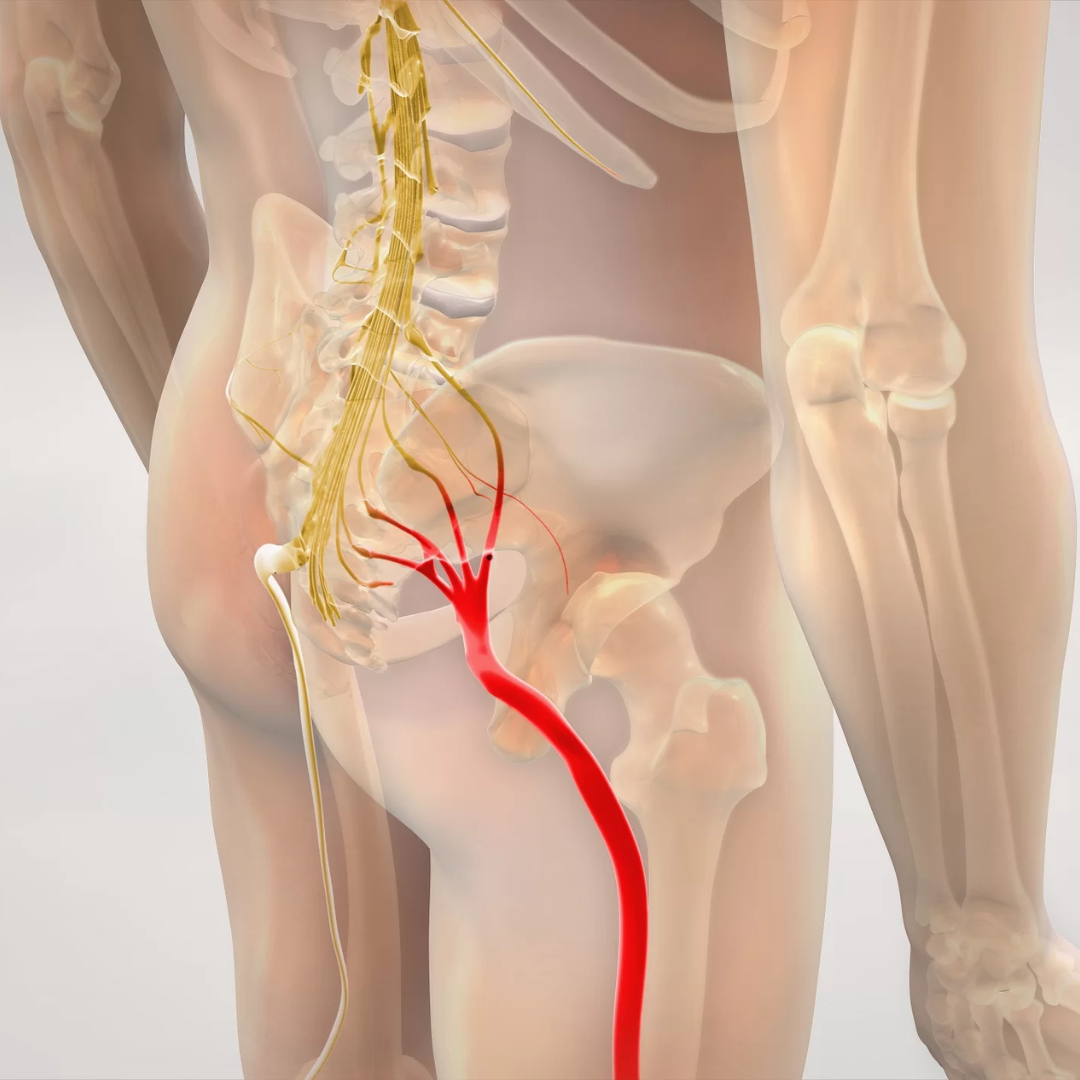Can a Chiropractor Help with Sciatica? Yes!
Author: Dr. Lauren Olney
Can a Chiropractor Help with Sciatica? Yes!
Sciatica is a common condition that affects many individuals, causing pain that radiates along the sciatic nerve, which runs from the lower back down through the hips and buttocks and into each leg. While it can be debilitating, many people may not realize that chiropractic care can be an effective treatment option for managing and alleviating sciatica symptoms. In this blog, we will explore how chiropractors can help with sciatica, the techniques they use, and what patients can expect from treatment.
Understanding Sciatica
What is Sciatica?
Sciatica refers to pain that originates in the lower back or buttocks and travels along the path of the sciatic nerve. It can result from various underlying issues, including:
Herniated or bulging discs
Spinal stenosis
Degenerative disc disease
Piriformis syndrome
Spondylolisthesis
Common Symptoms of Sciatica
Individuals experiencing sciatica may encounter a variety of symptoms, including:
Sharp pain that radiates down the leg
Numbness or tingling in the leg or foot
Muscle weakness in the affected leg
Pain that worsens with prolonged sitting or standing
Understanding these symptoms is crucial for effective treatment and recovery.
How Chiropractors Treat Sciatica
Chiropractic Adjustments
Chiropractors are trained to assess and treat musculoskeletal issues, and one of the primary methods they use is spinal manipulation or adjustment. This technique involves the chiropractor using their hands to apply controlled force to specific joints in the spine, helping to restore alignment and improve mobility.
Benefits of Chiropractic Adjustments for Sciatica
Pain Relief: Chiropractic adjustments can help alleviate pressure on the sciatic nerve, reducing pain and discomfort.
Improved Mobility: By restoring proper alignment, patients often experience increased range of motion in the lower back and hips.
Reduced Inflammation: Adjustments may help decrease inflammation in the affected areas, promoting faster healing.
Therapeutic Exercises
In addition to spinal adjustments, chiropractors often recommend specific exercises tailored to strengthen the muscles that support the spine and pelvis. These exercises can help alleviate sciatica symptoms and prevent future episodes.
Examples of Therapeutic Exercises
Stretching: Gentle stretching of the lower back, hips, and legs can relieve tension on the sciatic nerve.
Strengthening: Exercises focusing on core and lower back strength can provide better support and stability, reducing the likelihood of injury.
Aerobic Activities: Low-impact activities such as walking or swimming can promote overall fitness without aggravating symptoms.
Massage Therapy
Many chiropractors incorporate massage therapy into their treatment plans for sciatica. Massage can help relax tight muscles, improve circulation, and enhance the overall effectiveness of chiropractic adjustments.
Benefits of Massage for Sciatica
Reduced Muscle Tension: Massage therapy can alleviate tension in the muscles surrounding the sciatic nerve, providing immediate relief.
Improved Circulation: Enhanced blood flow can promote healing and recovery in the affected areas.
Stress Reduction: Massage can also help reduce stress and promote relaxation, which is beneficial for overall well-being.
What to Expect During Your Chiropractic Visit
Initial Consultation
During your first visit to a chiropractor for sciatica, you can expect a thorough evaluation. The chiropractor will take a detailed medical history, perform a physical examination, and may order diagnostic imaging (such as X-rays or MRI) to assess the underlying cause of your sciatica.
Treatment Plan
Based on the findings from your evaluation, the chiropractor will develop a personalized treatment plan tailored to your specific needs. This plan may include a combination of chiropractic adjustments, therapeutic exercises, and massage therapy.
Ongoing Care
Chiropractic care is often most effective when it is part of a comprehensive approach. Patients may need to attend multiple sessions to achieve optimal results. Your chiropractor will monitor your progress and adjust the treatment plan as necessary.
Additional Benefits of Chiropractic Care for Sciatica
Holistic Approach
Chiropractic care focuses on the whole person rather than just the symptoms. By addressing the underlying issues contributing to sciatica, chiropractors help promote long-term health and wellness.
Education and Prevention
Chiropractors provide valuable education on lifestyle changes, ergonomics, and injury prevention strategies to help patients avoid future episodes of sciatica.
Drug-Free Treatment
Chiropractic care offers a non-invasive and drug-free approach to managing sciatica, making it an appealing option for those seeking alternative treatments.
Frequently Asked Questions about Chiropractic Care for Sciatica
Can chiropractic care help everyone with sciatica?
Chiropractic care can benefit many individuals with sciatica, but results may vary depending on the underlying cause and severity of the condition. It's essential to consult with a qualified chiropractor to determine the best treatment plan for your specific situation.
How long does it take to see results from chiropractic care for sciatica?
The time it takes to see improvement varies by individual. Some patients may experience relief after just a few sessions, while others may require a longer treatment period. Consistent attendance and adherence to the treatment plan can contribute to faster results.
Are there any side effects associated with chiropractic treatment for sciatica?
While chiropractic adjustments are generally safe, some patients may experience mild soreness or discomfort after treatment. These side effects are typically temporary and resolve quickly.
How can I find a qualified chiropractor for my sciatica?
To find a qualified chiropractor, consider seeking recommendations from your primary care physician or friends and family. Additionally, researching local chiropractic clinics online and reading patient reviews can help you make an informed choice.
Explore Chiropractic Care for Your Sciatica Today
Chiropractic care can be a highly effective treatment option for managing and alleviating sciatica symptoms. By employing techniques such as spinal adjustments, therapeutic exercises, and massage therapy, chiropractors address the underlying causes of sciatica and promote long-term recovery. If you are experiencing sciatica, consider reaching out to our team at The Winchester Institute to discuss your symptoms and explore a personalized treatment plan that can help you find relief and improve your quality of life.

